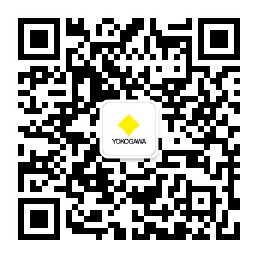Executive Summary

South Korean Petrochemical Company,
Yeosu, South Korea
South Korea’s petrochemical company is located in the town of Yeosu. The plant started from 350,000 tons of ethylene per year production and expanded to 1,000,000 tons per year now. There are twelve naphtha cracking furnaces in this plant. The naphtha used as the feedstock for this plant is fed to a pyrolysis (steam cracking) furnace, where it is combined with steam and heated to 980 to 1,080° C. Within this temperature range, the feedstock molecules "crack" to produce ethylene as well as methane, hydrogen, ethylene, propylene, butadiene, benzene, toluene, xylene, and other co-products. After the pyrolysis reaction is quenched, the rest of the plant separates the desired products into streams that meet the various product specifications. The process steps include distillation, compression, process gas drying, hydrogenation (of acetylenes), and heat transfer.
All of the processes at this ethylene plant are controlled by a Yokogawa CENTUM CS 3000 production control system that was engineered, installed, and commissioned by Yokogawa Korea. To further enhance operations at this plant, Yokogawa Korea introduced the Exapilot operation efficiency improvement package in 2006.

Pyrolysis reaction process
The Challenges and the Solutions
(1) Automation of naphtha cracker decoking
The pyrolysis reaction process in the ethylene plant employs naphtha cracking units (NCU), quench units, compressors, and dryer-equipped separators. The NCUs' operating temperature is carefully controlled to ensure efficient production. During the pyrolysis reaction, coke forms inside the NCU coils, resulting in decreased heat transfer and a decline in reaction efficiency. In the worst case, the coils can crack or rupture. To prevent this from happening, the plant operators need to perform a decoking process. For each of the twelve NCUs in this ethylene plant, this must be done either every 60 days that the furnace is in operation or when the furnace temperature reaches 1,080° C, whichever comes first. An important consideration in this is scheduling as the plant's operators in the central control room have a very demanding workload.
The managers of this plant decided to automate this complex, non-routine process. After taking one year to plan the methodology and the necessary parameters and sequence of procedures, they decided to use Yokogawa's Exapilot solution to optimize the execution of the overall process. Using Exapilot, they created a program in flowchart format that specified all the necessary procedures and parameters. No special programming knowledge was required in this, and the resulting flowchart could also be printed out for use as a standard operating procedure manual.
On the Exapilot program screen, the icon corresponding to the procedure that is currently being implemented is highlighted with a different color, making it easy for operators to monitor the progress of the process. These icons can also be used by field and board operators to confirm DCS data settings and issue instructions to be carried out at specific points in the process. As a result, the NCUs at this plant are now operating more safely and efficiently.

(2) Automation of dryer regeneration
Three dryers are located adjacent to the separation unit: the charge gas dryer, hydrogen dryer, and propylene dryer. To maintain the efficiency of all subsequent processes, each of these dryers needs to be regenerated when it becomes saturated with moisture. This regeneration process is complex, requiring the operation of numerous valves. Exapilot is used to ensure that this essential process is carried out correctly, safely, and efficiently.
Customer Satisfaction
The leader of the naphtha cracking department at the Yeosu plant explained that Exapilot is easy to understand and use, allowing them to create flowcharts of standardized procedures based on the expertise of their best operators, and to easily make corrections whenever a procedure needs to be changed. Operators are now able to interactively navigate through the complex processes of decoking and dryer regeneration. Thanks to the near complete automation of these processes, operator workload has been drastically reduced and safety has been enhanced. The personnel here are now striving to improve many other processes at this large petrochemical plant and believe that this and other Yokogawa solutions are helping to make them more globally competitive. They plan to keep working together with Yokogawa Korea to realize this goal.
Summary of customer's benefits
- Reduced operator workload
- Fewer operator errors
- Safer operations
- Reduced steam consumption
- Lower maintenance costs
相关行业
相关产品&解决方案
-
敏捷的项目执行
敏捷项目执行提供了新的工程可能性,改变了项目的计划和执行方式,降低了风险,增加了计划的灵活性。
-
集散控制系统(DCS)
横河电机的集散控制系统(DCS) 可实现工业过程的自动化和控制,并提高业务绩效。30,000多套系统的经营者选择采用横河电机的DCS来实现其生产目标。
